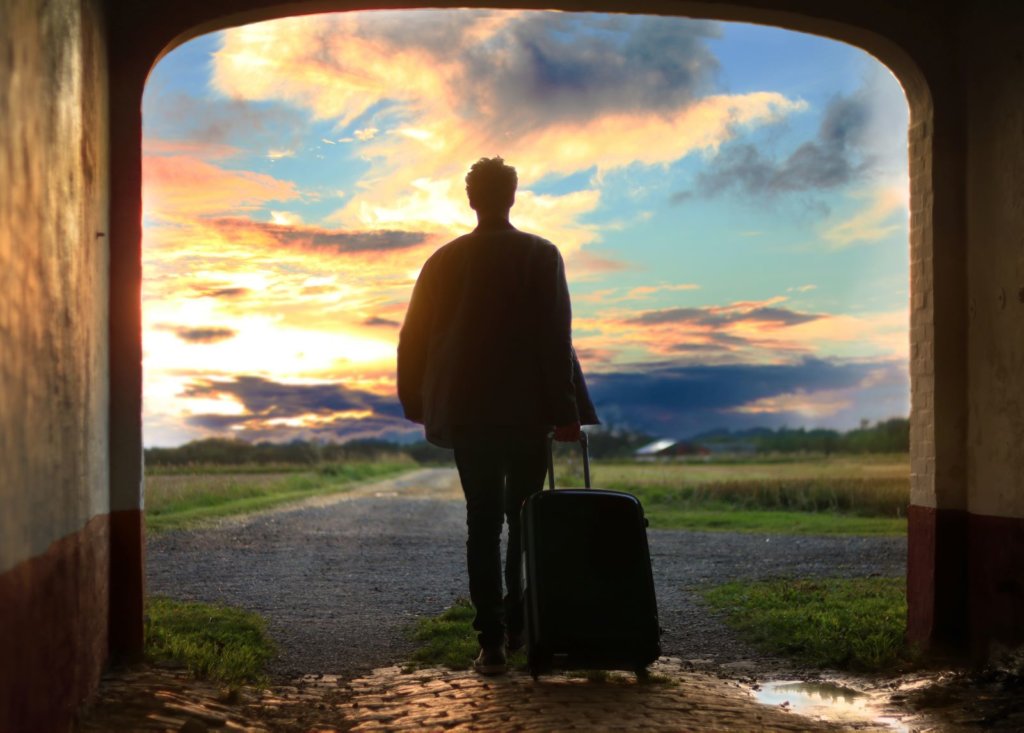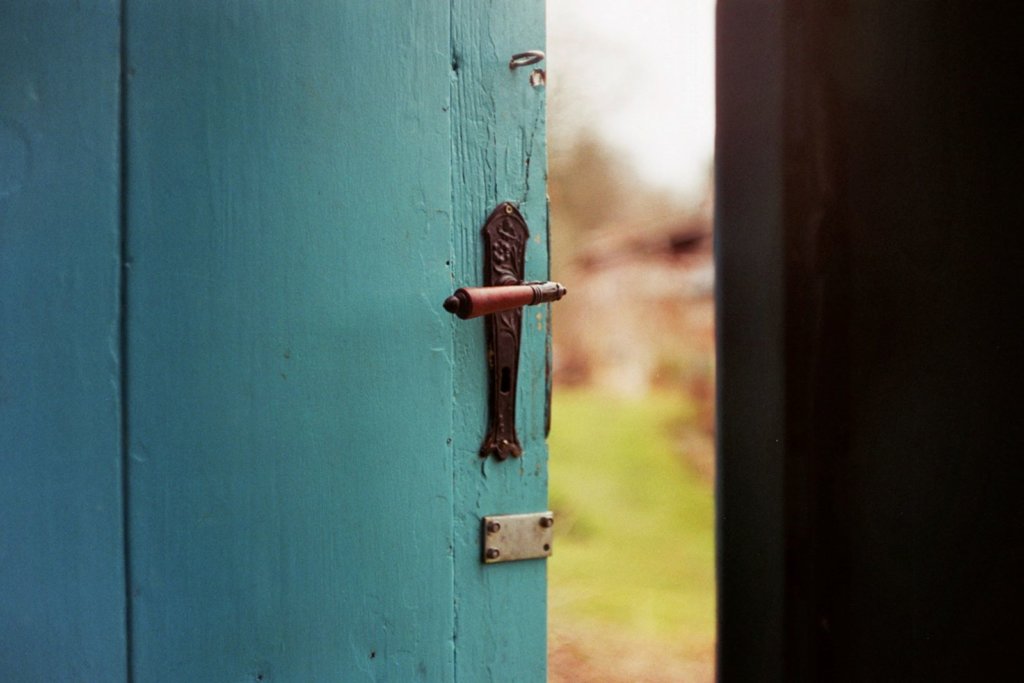A friend sent me a podcast he created solely using AI and it freaked me out. By feeding a discourse into a large language model, it spit out a realistic conversation between two “people.” I didn’t love the podcast because the speakers said “like” too much, but still. AI created something much easier and swifter than me, a human. From there I spiraled into “AI will replace me” territory because I’m not a plumber – I’m a writer.
I tried to soothe myself by remembering AI can only regurgitate what’s already been generated and I’m creating something new. For instance, the novel I’m writing centers on a woman with an eating disorder who finds recovery from it. As astounding as it may seem, that story doesn’t exist for adults! So there’s still a role for me. But/and the whole thing has me pondering what are my gifts? And beyond that, what does it mean to be human?
The thing I do as a human that AI cannot is commune with subtle energies. I receive messages from the Divine Beloved and communicate them to humanity. To that end, I’m sharing a letter from my higher power to me because I think you will also find it beneficial.

This picture reminded me of the expression, “Worth your weight in gold.” Photo by Kent Pilcher on Unsplash
Dear one,
You are irreplaceable. Who you are and what you contribute to the world is so much more than your paid work. It’s your interactions with others, it’s your life experience, it’s your wisdom, your kindness, and your love. You are a part of the web of life and bigger than what you generate or what AI can generate on your behalf.
You worry about AI replacing you but you don’t realize that’s impossible. A machine cannot fulfill all the roles and functions that you do. You are love itself and that’s more precious than anything currently in existence. You touch minds and hearts wherever you go and that’s what matters, not whether you can create a podcast in three minutes.
Society is entering a new phase of development where everyone is learning what it means to be human so you will become even more valuable. You do not treat people like machines. You don’t look at them for what they can produce or how they can help you. You look at people as expressions of divinity. You remind them they’re special and sacred and that cannot be quantified, nor can it be replaced.
I know you’re scared you’ll be out of a job soon but you will never be out of a job even if your role changes because your job is to know Me, to love Me, to move toward Me, the ever-loving entity that pervades this universe. When you take shelter under me, you are always shielded from every storm. So do not worry. You are held, you are loved, you are guided every moment of every day. Rest in that, trust in that, and know all is well.
I dream of a world where we recognize we are so much more than what we produce. A world where we understand we are irreplaceable as unique expressions of an infinite loving consciousness. A world where we understand we are interwoven in the web of life and that’s far more complicated than it may seem. A world where we remember we’re irreplaceable.
Another world is not only possible, it’s probable.
Whenever I share about my upcoming Australia trip, people are genuinely happy for me. I’m taken aback because sharing good news, especially over social media, seems perilous these days. A year or so ago, Glennon Doyle shared a video of her singing on a boat with her friends and family. The next day, she had the single-largest drop in followers her entire time on Instagram. She posited it’s because there’s something triggering about seeing women, especially, happy. That perhaps we’re more comfortable with their pain and suffering.
More recently in October, Daisey Miller shared a tweet that said, “my husband and i wake up every morning and bring our coffee out to our garden and sit and talk for hours. every morning. it never gets old & we never run out of things to talk [about]. love him so much.” Some responses were positive but many were scathing and called her out for being privileged and presumably wealthy. There was an assumption Miller didn’t work and had minimal responsibilities.

Happiness increases when it’s shared. Photo by Catalin Pop on Unsplash
In other words, instead of celebrating Miller’s quality time with her husband, people tore her down and mocked her. Numerous people tweeted their own versions: “my husband and i wake up every morning and go out to our garden and swordfight for hours. every morning. it never gets old & we never run out of ways to duel and spar. love him so much,” or “my husband and i wake up every morning and go out to our garden and we kill each other with our bare hands because we are miserable and we both have crabs.”
Those that didn’t mock her showcased self-righteousness, which is the conviction that one’s beliefs and behaviors are the most correct. As John Mark Green puts it, “The self-righteous scream judgments against others to hide the noise of skeletons dancing in their own closets.” Twitter is rife with self-righteousness and a hotbed of schadenfreude, a compound of the German words schaden, harm, and freude, joy. It means deriving pleasure or joy from someone else’s suffering or misfortune.
Brené Brown writes in her book Atlas of the Heart that schadenfreude is “seductive. Especially when we’re sucked into groupthink. It’s easy to build counterfeit connection with collective schadenfreude. I say ‘counterfeit’ because when we see someone who we don’t like, we disagree with, or is outside our group stumble, fall, or fail, it’s tempting to celebrate that suffering together and to stir up collective emotion.”
I mean, I get it. I’ve felt schadenfreude from time to time. But that doesn’t mean schadenfreude has to dominate your life. The antidote to schadenfreude is freudenfreude, a word made up by an American psychologist that literally translates as “joy joy.” It’s letting yourself feel vicarious joy for others. When we share our joy, our joy increases. The Buddha stated this well when he said, “Thousands of candles can be lighted from a single candle. Happiness never decreases by being shared.”
I have to remind myself of that because I worry by sharing my good news people will judge me, one-up me, or try to tear me down. Thus far they haven’t, probably because I’m not famous and I don’t surround myself with jerks. It could also be that I engage in freudenfreude regularly. I really and truly celebrate when others celebrate. Seeing their joy brings me joy and perhaps that’s why it’s coming back to me. Together, we are multiplying happiness.
I dream of a world where we celebrate each other’s wins. A world where we practice freudenfreude more than its opposite. A world where we remember happiness doesn’t decrease when it’s shared, instead it’s multiplied.
Another world is not only possible, it’s probable.
Lately, I’m noticing how much I catastrophize. Catastrophizing is assuming that the worst will happen. It can also be believing you’re in a worse situation than you really are or exaggerating the difficulties you face. For me, it’s the former, assuming the worst will happen. I don’t catastrophize every situation. The ones that I feel are within my control I’m optimistic about. For instance, I’m not someone who says, “I’ll miss my flight!” because I know I leave plenty of time to get to the airport.
My catastrophizing is along the lines of “My plants are going to die while I’m in Australia!” I’m setting up a water-wick system for my indoor plants but nonetheless, I’m pretty convinced it will fail. And the idea of asking someone to water them also brings catastrophizing, “What if they forget and my plants would have been better off with the water-wicking system?!?”

Maybe my plants will be fine! Photo by Katya Ross on Unsplash
As you can see, it’s loads of fun over here in my brain. A solution I keep circling is: “Give equal air time to things working out.” I care deeply about fairness so hearing it phrased that way helps me. I say to myself, “You’re not being fair and equal by only focusing on the negative. What if you devoted the same amount of time to things working out? What if your plants are healthy and thriving when you get back?”
Even asking those questions causes my brain to short-circuit a little because honestly, I hadn’t considered that possibility. What if everything works out? It’s true. Everything could work out. It’s just as likely my plants will be alive when I come back instead of dead. Why not focus on the positive outcome?
The brain is a muscle that needs training like the other muscles. I have to train myself to be optimistic and it’s something my spiritual teacher encourages when he says, “Human beings must not be pessimists under any circumstances. I am an incorrigible optimist, for I know that optimism is the very essence of life.”
That statement is backed up by science in the sense that optimists live longer, the Washington Post found. Optimists lived into their 90s versus the average life span of 83. And the results remained even after accounting for other factors known to predict a long life such as education level, economic status, ethnicity, and whether a person had depression or chronic health conditions.
Yes, it’s easier to default to the negative because after all, we humans are prone to a negativity bias, but why not at least give the positive equal air time? It’s only fair and could help me live longer to boot.
I dream of a world where we allow ourselves to catastrophize as well as positively visualize the future. A world where we remember positive and negative outcomes are both likely. A world where we train our minds to be optimistic. A world where we give equal airtime to the positive.
Another world is not only possible, it’s probable.
A little more than a year ago, I wrote a post called “Plants and People Need Pruning.” It was about letting go of relationships and recognizing it’s really hard for me. Part of the reason it’s hard is that all too often I don’t get a proper goodbye. The people that mattered to me – friends, partners, potential partners – just stopped talking to me. They were in my life one day and gone the next. Sometimes it wasn’t so dramatic. Sometimes they pulled a “slow fade” – gradually our communication became less and less until it disappeared altogether.
Some of my friends, especially the ones from college, I speak to on a less frequent basis because we live in different time zones, but I still consider them my friends. I understand relationships have ebbs and flows so this post isn’t about them, but rather the other relationships that are well and truly dead. Almost all of those relationships never received a proper goodbye.
When Gwyneth Paltrow and Chris Martin touted their conscious uncoupling, the public mocked them mercilessly. It sounded like a hokey thing made up by celebrities. So much ire and derision were spewed in their direction that Paltrow said, “The intensity of the response saw me bury my head in the sand deeper than I ever had in my very public life.” I suspect that’s because many people are uncomfortable with goodbyes and don’t know how to do them because it’s awkward or challenging. I understand. But push past that discomfort because a conscious uncoupling, or whatever you want to call it, can be a tremendous gift you give to yourself and someone else.

To say goodbye means to open to a new journey. Photo by Mantas Hesthaven on Unsplash
On Thursday, I said goodbye to my therapist/coach of eight years. This is a man I spoke with nearly every week. He knows everything about me and has seen me through soooo much. I’m not the same person I was as a result of our work together. However, I reached a point where I outgrew the need to see him every week. Instead of saying, “OK, bye, good luck with your life,” we had a termination session.
I told him all the things I appreciated about our time together, how I changed, what I will miss, and more. He did the same for me. I cried, a lot, but when we said goodbye, I didn’t feel an intense ache in my chest like I normally do. I didn’t feel hurt or wounded. I wasn’t left wondering if I matter to him or if he knows he matters to me. There were no question marks because we expressed it all. We honored our relationship and that’s exactly what I’ve been longing for all these years. It was healing to finally, FINALLY have a proper goodbye.
My spiritual teacher says, “A 5-year-old child is transformed in due course into a 15-year-old boy. In 10 years, the child becomes a boy. Thereafter, you will never be able to find the body of the 5-year-old child. So, the child’s body has certainly died.” He then goes on to mention the boy growing into a man, and then hitting middle age, then old age, until he finally dies and says, “The rest of the changes we do not call death; but in fact, all the changes qualify as death.”
If all changes qualify as death, why not hold little funerals for them? Why not grieve for them and give them proper homage and respect like we would for a no-longer-in-a-physical-body death? You might find that’s exactly what you need. I know I did.
I dream of a world where we say a proper goodbye to people. A world where we practice that not only for those on their deathbed but also for the living. A world where we lean into the possibly uncomfortable, awkward, or challenging situation of saying a conscious goodbye to someone because it’s beneficial for them and for us.
Another world is not only possible, it’s probable.
I keep thinking about a post I wrote for a now-defunct website called Quarterlette.com in 2012. It was about opportunity beating down your door. What follows is an edited version of that post. Enjoy.
Growing up I heard the expression, “Opportunity only knocks once,” and I really took it to heart. I took advantage of every opportunity that came my way because I was scared it would slip away like a snowflake melting in the sun. Except as we know, when snowflakes melt, they come back again when it snows. Very rarely does it snow once and that’s it forever and always. Snowflakes are like opportunities in that they come around again if we only wait for them.
Reverend Michael Beckwith has a quote, “Opportunity doesn’t knock once – it will beat down your door!” When I heard him say that years ago, I laughed because I certainly found it to be true for me. If something is meant to be, the universe will make darn sure you get the message and will create situations for you to take advantage of that opportunity.
As a freshman in college, I attended UNC-Chapel Hill for a semester. It was a bad decision, not because Carolina is a horrible school, but because I didn’t fit in there. Forcing myself to go to Carolina was like forcing an 8-year-old to eat canned spinach – it can be done, but it’s not enjoyable. I toyed with the idea of going to UC Berkeley because from what I knew about Berkeley, it seemed more my scene – full of vegetarians, hippies, and spiritual seekers. Ultimately though, I decided to go to American University in Washington, D.C.

Opportunity knocks more than once. Photo by Jan Tinneberg on Unsplash
I loved Washington, D.C., and decided to stay there after graduation. It’s a small city in terms of size but big in terms of what it has to offer. I had a large contingent of friends there (still do) and even managed to score a great apartment on Wisconsin Avenue, which meant I could gaze at the National Cathedral from my living room window. The National Cathedral is to this day one of my favorite places in the world primarily because it has a piece of the moon embedded in a stained-glass window.
Life was pretty good, only, I hated my job. Like, really hated my job. Like, complained-every-day-and-dreaded-waking-up-in-the-morning hated it. This was no fault of the company or the people. It was another case of canned spinach – great for some people but distasteful for me.
I had every intention of quitting and finding something else in the area, except opportunity came a knockin’ – or in this case, stampeding. I really have no idea why but while at a yoga and meditation retreat, I talked to one of the participants about his hometown, San Francisco. That conversation planted a bug in my ear and I found myself contemplating moving to San Francisco. I immediately decided it was a terrible idea because I didn’t know anybody, and like I said, life was pretty good for me in Washington, D.C., but the universe doesn’t give up that easily.
The very minute I said, “Nah, I’ll stick around in D.C.,” I saw someone reading the Yoga Journal, a magazine based in San Francisco and one I aspired to work for. It startled me because seeing this woman reading her magazine felt like a sign, as innocuous as it was. However, I still wasn’t convinced moving to San Francisco was in my best interest. Of course, from then on San Francisco became ubiquitous. While walking down the street in D.C., I saw San Francisco hats, San Francisco t-shirts. I met people left and right who were from San Francisco. When something shows up that many times it can’t be ignored. Opportunity was beating down my door. I finally said, “OK, I’ll do it.”
By now you know what happened – I settled here. The Bay Area has been my home for 14 years. When I start to worry that maybe I missed the metaphorical boat, that I should have said “yes” to something instead of “no,” I remind myself the universe will conspire to bring what’s mine to me over and over again.
I dream of a world where we remember opportunity doesn’t knock once, it will beat down your door. A world where we recognize what’s ours is ours and the universe will create situations to demonstrate that over and over again. A world where we have trust and faith that we will never miss the metaphorical boat because if it’s meant to be, we’ll board another ship.
Another world is not only possible, it’s probable.
For the past few weeks especially I’ve been going through some serious mental anguish. The reason for my strife is I’ve been at war with myself. I’ve been divided between my head and my heart. My mind and my intuition have been at odds and in that state I experience the worst kind of hell.
Instead of going internally for answers I’ve been seeking outside help. “What do you think I should do? What do you think I should do? And you?” I’ve been asking friends and family for advice, caught up in this manic state of hopping from one person to another. And that? That does me no good.
The reason I’ve refused to look internally for answers, to talk to my intuition, is I’ve been afraid of what it would say. When I want something so badly I’m scared of hearing it won’t come to fruition. But I’ve found it’s still better to listen even when I don’t want to because otherwise life becomes unbearable.
I bring this up because it’s scary to listen to your intuition when it flies in the face of logic. It’s scary to go against the grain, especially when every person in your life opposes your decision. I think it’s important to distinguish here between whim and intuition. I get a passing fancy every now and again to jump on a plane and fly to New Zealand. That my friends is escapism, not intuition. However, if every cell of my body screamed for me to go to New Zealand, if it was couched in more than just ego-centered desire, it’s intuition.
I want to follow my intuition every step of the way. I want to feel steadfast even when I’m alone in my decision. I love my friends and family but how can they know what’s best for me? We barely know what’s best for ourselves. I want to stop getting distracted by the colorful pinwheel folds of my mind and instead focus on the gold-colored fastener in the middle where my intuition resides. I want to go deeply within and align my desires to my intuition. I wish to be me and know me and stay true to my core. I wish to be with my core always. I want to listen to my intuition always even when I’m scared of the answer. I wish to follow it because I know life is better when I do so.
I envision a world where we go internally for answers. A world where we listen to ourselves and our inner divinity. A world where we know ourselves and trust ourselves above all others. Where we do not become clouded by doubts and logic but rather move ahead at full steam because we want what’s in our best interest. I dream of a world where we know our core and listen to our core. Where we do not get distracted by what others say to us and instead do the “illogical” things anyway if that is where we’re being guided. I envision a world where we know true happiness and true peace because we follow our instincts.
Another world is not only possible, it’s probable.